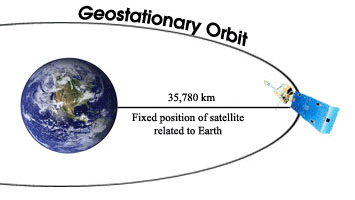General Discussion
Related: Editorials & Other Articles, Issue Forums, Alliance Forums, Region ForumsA SpaceEx/Facebook rocket exploded at Cape Canaveral launch pad
(read the comments)
This morning around 9:07 am ET, SpaceX experienced a devastating explosion while completing a routine static test-fire in preparation for a launch on Saturday.
Luckily, no injuries were reported, but the payload, the Amos-6 satellite, was on the Falcon 9 at the time and was also destroyed. A nearly $200 million satellite, Amos-6 was set to be launched to geostationary orbit and provide internet to various locations in Africa as part of Facebook’s Internet.org initiative.
https://techcrunch.com/2016/09/01/here-what-we-know-about-the-spacex-explosion/
backscatter712
(26,355 posts)From what I've read elsewhere, it was a failure during the static-test, which is essentially the dress-rehearsal for the launch. They put all the parts together, get everything on the pad, fill the rocket with fuel and LOX, and do the countdown exactly as they do it on launch day, right up to the point where on real launch, the hold-downs would be released and the rocket would take off.
From what I've heard, it might be a problem with the ground equipment that may have caused this - fueling mishap of some sort.
Well, this is why people are kept miles away from launch pads when live rockets are set up and loading with fuel. It's a big setback - they lost the rocket, they lost the payload. Goes to show space is hard...
malaise
(269,123 posts)Damn!
backscatter712
(26,355 posts)They also blew up the launch pad. That's gonna take time and money to fix...
RUDs in real life are harder to recover from than in Kerbal Space Program...
GummyBearz
(2,931 posts)on edit: I wonder if Zuckerburg bundled that with his home and auto insurance? Would probably be a nice savings
malaise
(269,123 posts)Warren DeMontague
(80,708 posts)Watching the video, the explosion seems to start near the top of the rocket. Also geostationary launches require more fuel, because it's a much higher orbit. I wonder if there's some secondary stage in there they don't normally use for the low earth orbit launches. Just speculatin', of course.
malaise
(269,123 posts)on this topic - a rocket scientist I am not ![]()
Warren DeMontague
(80,708 posts)The ISS zips around the Earth in low Earth orbit and I think they experience something like 15 sunsets/sunrises a day, if you can imagine it. So it takes them, I don't know, 90 minutes to go all the way around.
Newtonian physics is pretty straightforward. Everything in a particular orbit (as in, distance out) is moving at the same speed. Go faster, you actually move out into a further orbit, and as such (in relation to the Earth) go slower, or have a longer orbital period. To speed up, conversely, slow down, and you'll drop down lower. It's counter-intuitive, certainly.
But if you get out far enough to where you take 24 hours to go all the way around, you're in a geostationary orbit, which means you are sitting over the same spot on Earth all the time.

malaise
(269,123 posts)It's so cool
Thanks for the lesson ![]()
backscatter712
(26,355 posts)The payload may also have its own thrusters, though they're tiny.
The vast majority of the work is done by Falcon 9's two stages. The big difference is that there's a lower maximum payload mass for payloads going up to geostationary orbit, rather than just to low earth orbit.
Also, when they're doing a heavy payload to geostationary orbit, it's harder for them to land the first stage. In some cases, they just couldn't do it - not enough fuel left, in other cases, the stage had to come in for a landing on the drone ship really fast and hot, and that makes the landings far more difficult.
Aside from that, it's a matter of loading the correct amount of fuel and liquid oxygen to get the payload to its orbit. And no matter what, it's a LOT of flammable RP1 fuel (essentially very highly refined jet fuel, aka kerosene) and liquid oxygen. Enough chemical energy to match a very small nuclear device. You're not just going 200 miles up (or 22,000 miles for a geo orbit), you're also going very fast. I'm talking at least 17,000 miles per hour, just to get to LEO. Need a lot of energy to make that happen.
Warren DeMontague
(80,708 posts)backscatter712
(26,355 posts)Last edited Thu Sep 1, 2016, 07:14 PM - Edit history (1)
Maybe the second stage LOX tank blew, or the hardware filling it up blew. That's close to the top of the rocket.
Warren DeMontague
(80,708 posts)NightWatcher
(39,343 posts)
malaise
(269,123 posts)pangaia
(24,324 posts)backscatter712
(26,355 posts)FLPanhandle
(7,107 posts)And it's nearly as dramatic.
Egnever
(21,506 posts)Jeffersons Ghost
(15,235 posts)tytrace
(9 posts)glad no one was hurt though